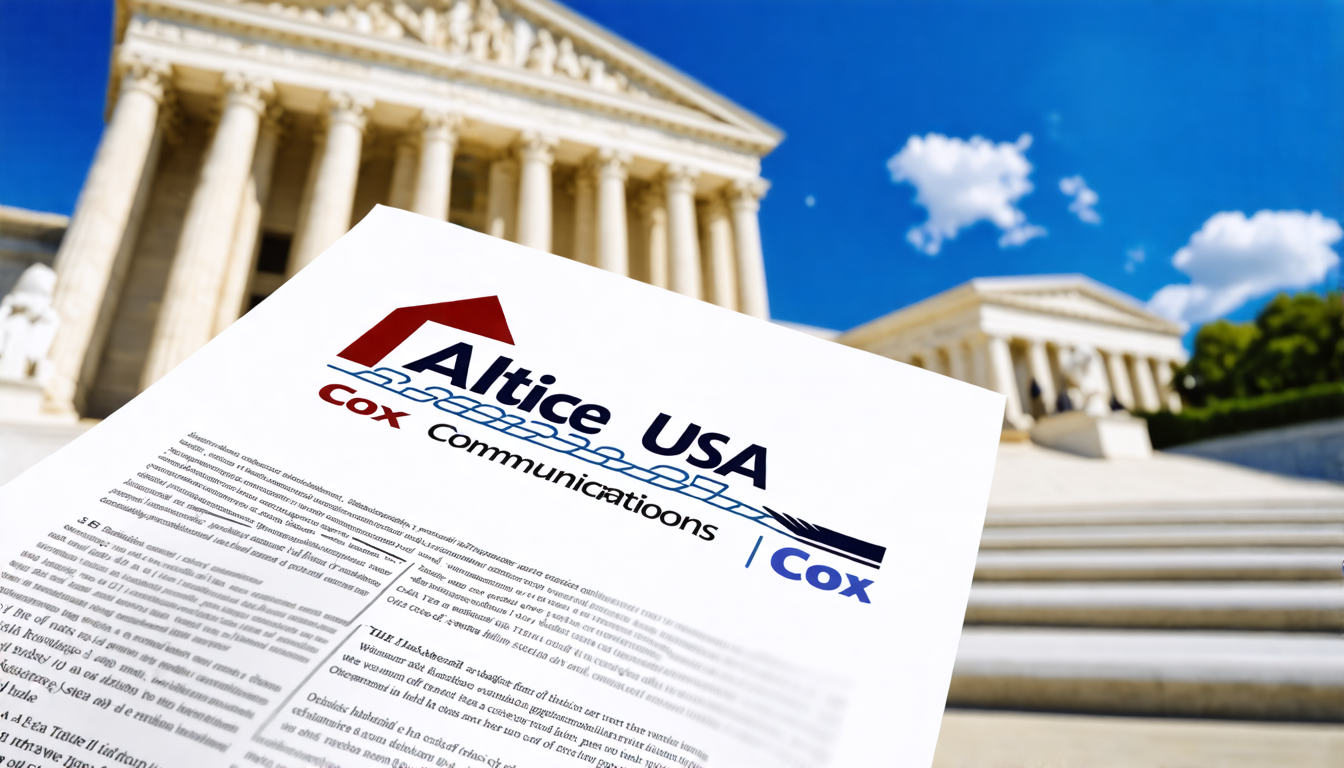Altice USA Submits Amicus Briefs Supporting Cox’s Petition to the Supreme Court
In a significant move within the telecommunications industry, Altice USA has submitted amicus briefs in support of Cox Communications’ petition to the Supreme Court. This action highlights the ongoing legal battles and regulatory challenges faced by major cable and broadband providers as they navigate an evolving technological and legal landscape.
The Context of Cox’s Petition
Cox Communications, a leading broadband communications and entertainment company, is currently involved in a legal dispute that has escalated to the Supreme Court. The core issue revolves around regulatory and operational challenges that could have wide-ranging implications for the entire industry. The specifics of the case pertain to how cable and broadband companies are governed, potentially affecting service delivery, market competition, and consumer rights.
Altice USA’s Stake in the Matter
Altice USA, one of the largest broadband and video service providers in the United States, has a vested interest in the outcome of Cox’s legal battles. By filing amicus briefs, Altice USA is not only showing solidarity with Cox Communications but also advocating for regulatory interpretations that would be favorable to the broader industry.
An amicus brief, also known as a ‘friend of the court’ brief, allows parties not directly involved in a case to present their views and provide additional information or perspectives that may assist the court in making its decision. Altice USA’s participation underscores the importance of the case’s outcome for similar companies.
Key Issues at Stake
- Regulatory Framework: At the heart of the dispute is the regulatory framework that governs cable and broadband services. Both Cox and Altice USA argue for a framework that promotes innovation, fair competition, and consumer benefits.
- Market Competition: The case could set a precedent for how competitive practices are monitored and enforced, directly impacting how companies like Altice USA strategize their operations.
- Consumer Rights: A crucial aspect of the regulatory debate includes consumer rights and protections. Companies are advocating for balanced regulations that ensure quality services while allowing operational flexibility.
Implications for the Industry
The outcome of Cox’s petition and the subsequent Supreme Court ruling could have far-reaching consequences for the telecommunications industry. A favorable ruling could lead to a more balanced regulatory environment that fosters growth, innovation, and competitive fairness. Conversely, an unfavorable decision could impose stricter regulations that might stifle technological advancements and hinder service providers’ ability to meet consumer demands effectively.
Altice USA’s Position
Altice USA’s decision to file amicus briefs emphasizes its commitment to advocating for a regulatory landscape that supports both business interests and consumer needs. By aligning with Cox Communications, Altice USA is actively participating in shaping the future of telecommunications policy in the United States.
In their briefs, Altice USA is expected to argue that a supportive regulatory environment is crucial for enabling companies to invest in infrastructure, expand services, and provide high-quality offerings to consumers. They are likely to emphasize the importance of a balanced approach that encourages competition without imposing undue restrictions on service providers.
Conclusion
As the Supreme Court prepares to address Cox’s petition, the involvement of major industry players like Altice USA underscores the significance of the case for the future of telecommunications regulation. The decisions made in this legal battle will not only affect the companies directly involved but will also set critical precedents for the industry’s regulatory framework moving forward. With high stakes for innovation, competition, and consumer rights, all eyes are on the Supreme Court as it considers this pivotal case.

